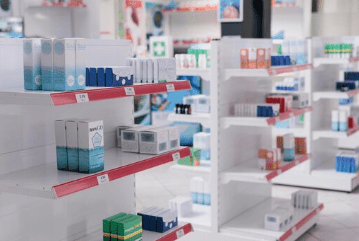Menstrual hygiene management (MHM) or menstrual health and hygiene (MHH) is a comprehensive approach that encompasses the accessibility of menstrual hygiene products for absorbing or collecting menstrual blood flow, ensuring privacy for changing these materials, and providing facilities for the proper disposal of used menstrual management materials. It addresses broader systemic factors linking menstruation with health, gender equality, education, empowerment, and rights. MHM poses significant challenges in developing countries due to inadequate clean water and sanitation facilities. This affects girls' education and social participation as they often lack effective sanitary products, hindering their involvement in various activities.
Data Bridge Market Research analyses that the global menstrual hygiene management market, which was USD 22.34 billion in 2021, is expected to reach USD 38.10 billion by 2029 and is expected to undergo a CAGR of 6.90% during the forecast period from 2022 to 2029.
Rising Awareness of Menstrual Health and Hygiene
Rising Awareness of Menstrual Health and Hygiene

Convenient Access: Supermarkets offer menstrual hygiene products alongside daily necessities, making them easily accessible
Wide Selection: Shoppers can choose from various brands and product types, catering to individual preferences

Health-Centric: Drug stores often emphasize the health aspect of menstrual hygiene, providing a range of trusted and specialized products
Expert Assistance: Pharmacists can offer guidance and recommendations to customers seeking specific menstrual hygiene solutions

Diverse Shopping Experience: Retail stores offer a comprehensive shopping experience, combining menstrual hygiene products with other personal care items
Competitive Pricing: Retailers may provide competitive pricing and promotions, making menstrual hygiene products more cost-effective for customers






- Sustainability: Menstrual cups are reusable, reducing environmental waste compared to disposable options
- Cost-Effective: They have a longer lifespan, making them a more economical choice
- Comfort and Safety: Made from medical-grade silicone or rubber, they are comfortable and pose lower health risks
- Leak-Proof: Menstrual cups provide a secure and leak-resistant option when used correctly
- Less Frequent Changes: Cups can be caried longer than tampons or pads
To know more, visit: https://www.databridgemarketresearch.com/reports/global-menstrual-cups-market
Tampons
Menstrual Pads
Challenges
Solutions
In conclusion, menstrual hygiene management is critical to public health and gender equality. Challenges stemming from limited access, cultural taboos, inadequate sanitation, health risks, and educational gaps are particularly pronounced in developing regions. Addressing these issues necessitates a comprehensive approach, including the provision of affordable sanitary products, the implementation of educational initiatives, the enhancement of sanitation infrastructure, the reduction of menstrual stigma, and fostering community involvement. By tackling these challenges and implementing solutions, menstruation can cease hindering individuals' well-being, education, and empowerment, promoting a more equitable and healthier society.
Data Bridge Market Research utilizes statistical primary research tools to deliver swift and dependable solutions, providing clients with decisively sound and strategically significant actionable insights.
Contact us Now: - https://www.databridgemarketresearch.com/contact